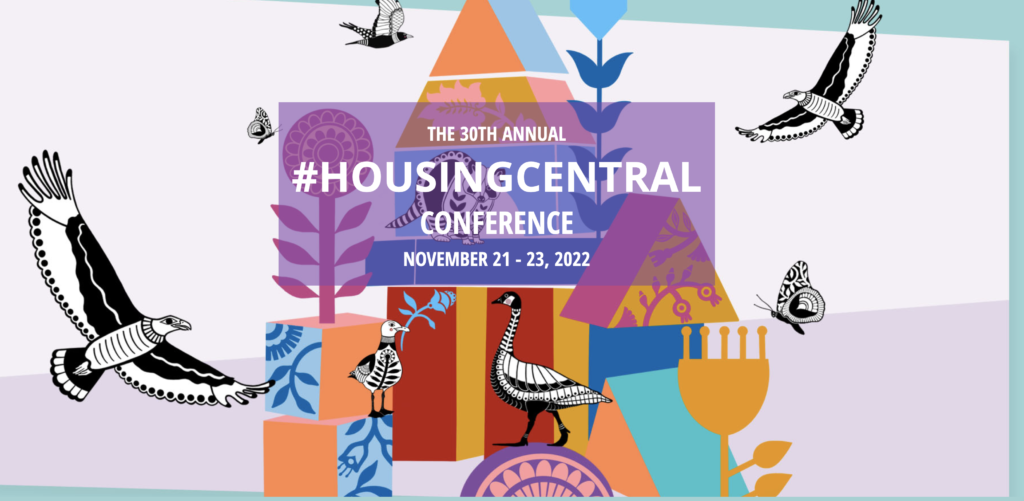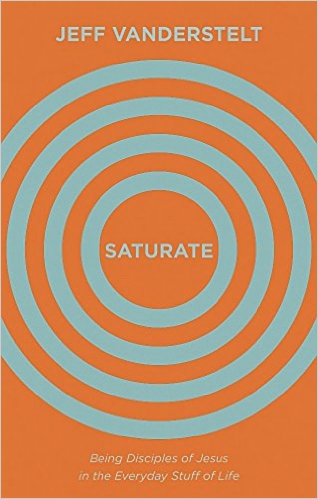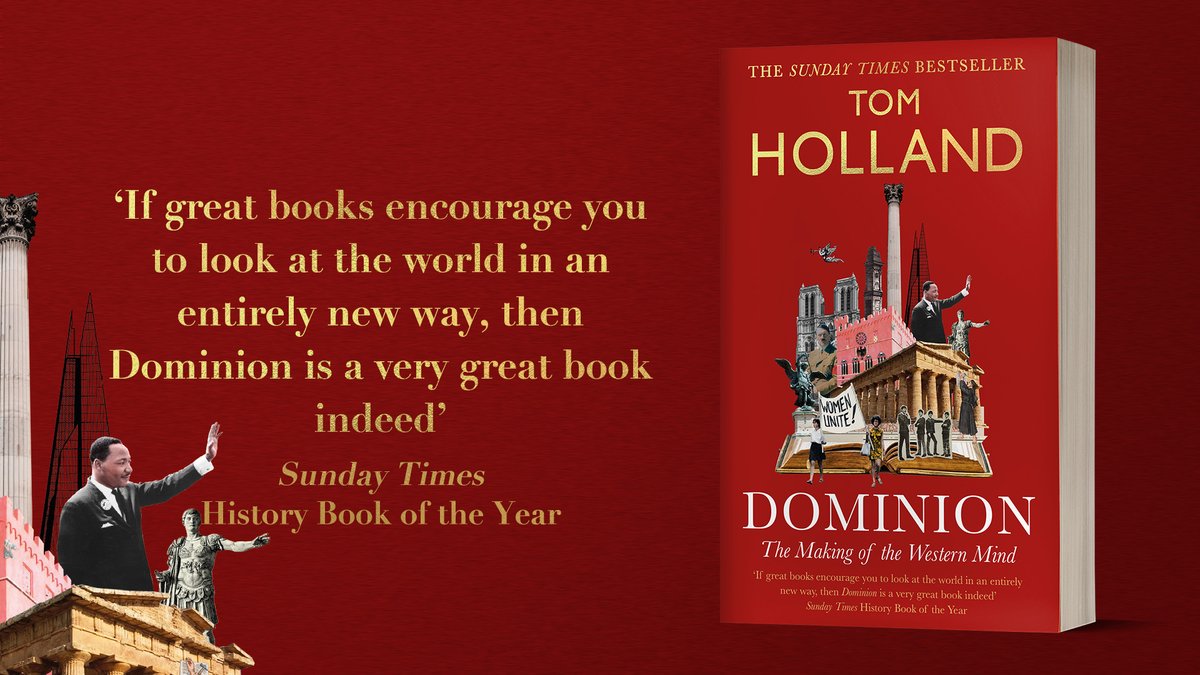Reflections on the 30th Annual Housing Central Conference
We are welcomed by the indigenous and led in worship by them. They beat their drums and sing about their land, their ancestors, and the creator of us all. Those of us with white skin are reprimanded at the beginning of every session. The land acknowledgement is a not-so-subtle reminder of a time when European expansion dominated the world. The only real options for non-Europeans were to assimilate or die. In the housing sector, the lingering hangover from European dominance and oppression continues to plague and damage indigenous survivors; It’s clear from the get-go that a conference such as this one is committed to helping the indigenous people not just with affordable housing but in every way possible.
The man introducing the speaker looks at her with admiration. This is one who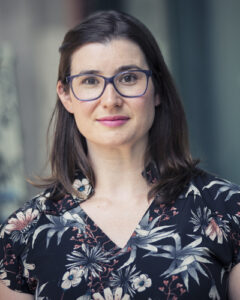 “speaks truth to power” better than anyone, he tells the audience. Dr. Christy Sutherland tears up with such a curtain raiser. Then she stands before us and launches into a charismatic rapid-fire speech highlighting Vancouver’s terrible state with the overdose crisis. One thousand six hundred forty-four people have already died of overdoses this year. That’s more than most other causes of death in our province combined. Then she vaults into a brief history in which she argues that the criminalization of drugs was never really about addressing the drug problem; instead, it was a racist means of controlling Blacks and Latinos in America. She flashes some “mic-drop” quotes on the screen, which substantiates her claim and moves on. Now she is attacking alcohol and cigarettes. These drugs are too legal, she claims. Alcohol is the worst one of the lot, far worse than opiates, but here it is accessible to the masses. Her big idea is two-fold: Alcohol and cigarettes are too legal. They should not be allowed to advertise at all. They should only be permitted to use generic labels. Alcohol and cigarettes should be strapped with more warning labels and negative publicity. Festivals that are specifically designed for the consumption of alcohol should be curtailed, and higher prices should be imposed across the board.
“speaks truth to power” better than anyone, he tells the audience. Dr. Christy Sutherland tears up with such a curtain raiser. Then she stands before us and launches into a charismatic rapid-fire speech highlighting Vancouver’s terrible state with the overdose crisis. One thousand six hundred forty-four people have already died of overdoses this year. That’s more than most other causes of death in our province combined. Then she vaults into a brief history in which she argues that the criminalization of drugs was never really about addressing the drug problem; instead, it was a racist means of controlling Blacks and Latinos in America. She flashes some “mic-drop” quotes on the screen, which substantiates her claim and moves on. Now she is attacking alcohol and cigarettes. These drugs are too legal, she claims. Alcohol is the worst one of the lot, far worse than opiates, but here it is accessible to the masses. Her big idea is two-fold: Alcohol and cigarettes are too legal. They should not be allowed to advertise at all. They should only be permitted to use generic labels. Alcohol and cigarettes should be strapped with more warning labels and negative publicity. Festivals that are specifically designed for the consumption of alcohol should be curtailed, and higher prices should be imposed across the board.
Meanwhile, drugs like Cocaine and Fentanyl are too Illegal. As long as they are illegal, their control and distribution fall to disreputable dealers. The best way to handle the use of all drugs, from cigarettes to Fentanyl, is to make sure they are neither too legal nor too illegal. She is for bringing back opium dens and coca tea shops that are tightly governed. She argues that all drugs are just molecules; there is no morality connected to them, and thus, they must be appropriately managed in the wide open. Dr. Sutherland clearly says she doesn’t want anyone to use drugs! But at the same time, she runs a drug sales program trying to out-compete street dealers; she doesn’t see this as contradictory. Nor does she see her safe-injection site initiative as counterproductive to her goal of preventing drug abuse. Is she off her nut, or is she on to something? I don’t know. What I do know is that the DTES where I live and work does not AT ALL seem to be getting better. The streets are full of people that are not using safe injection sites. Dr. Sutherland acknowledges that this is an issue. Are her initiatives helping? From my vantage point, it doesn’t seem like it.
There are more welcoming speeches by indigenous people, more singing, and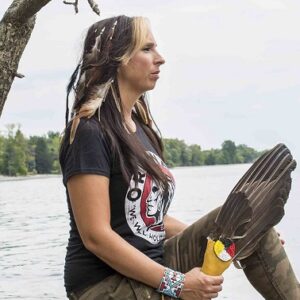 more land acknowledgements. Indigenous spokesperson Dr. Pam Palmater steps to the stage and explodes as one shot out of a cannon. She is neither gracious nor grateful. Her energy is not positive or encouraging. She is angry. She rails against government incompetence. She blasts corporate greed. She doesn’t like the language of “truth and reconciliation.” It’s too nice, too gentle, too passive. There is only one word that ought to be used for what has happened to her people. Genocide. This is what has happened. How does one recover from that, she asks? “It’s always on us to navigate our genocide. The genocide is not our fault. You can’t just shake off ongoing genocide,” she vociferates. The criticism that many indigenous people get to “stop living risky lives” or “pull themselves up by their own bootstraps” is inappropriate in the extreme.
more land acknowledgements. Indigenous spokesperson Dr. Pam Palmater steps to the stage and explodes as one shot out of a cannon. She is neither gracious nor grateful. Her energy is not positive or encouraging. She is angry. She rails against government incompetence. She blasts corporate greed. She doesn’t like the language of “truth and reconciliation.” It’s too nice, too gentle, too passive. There is only one word that ought to be used for what has happened to her people. Genocide. This is what has happened. How does one recover from that, she asks? “It’s always on us to navigate our genocide. The genocide is not our fault. You can’t just shake off ongoing genocide,” she vociferates. The criticism that many indigenous people get to “stop living risky lives” or “pull themselves up by their own bootstraps” is inappropriate in the extreme.
Now it’s time for some therapeutic gold from Ross Laird. His session is 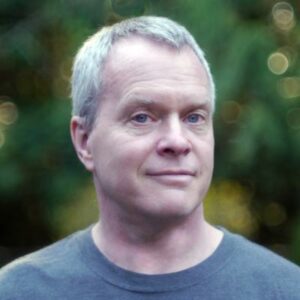 intended to help me navigate ongoing vulnerability and stress. Ross acknowledges that the “creeping traction of overwhelm” is rising. We are all socially rusty coming out of the pandemic. Alcohol consumption has increased by 50% in the last few years. 80% of university students are reporting “crippling mental health problems.” Currently, 55% of Canadians don’t have a person in their lives that they can trust. Social isolation and profound loneliness are the most significant problems of our time. After setting such a depressing table, Ross points us in an unexpected direction to get help. He criticizes our modern head-centric, science-based self-focused approaches to fixing our mental health problems, and then he laments that we’ve forgotten the ancient stories. Next, he sweeps us up on a journey back to ancient Egypt. We examine hieroglyphics. The old Egyptian boat is full of choppy stick figures working together to navigate the underworld. These archaic people journeyed the vagaries of life together, he says. “No one can navigate the waters of darkness alone. Mental health is not about you!” Ross boldly declares. “It’s about how you interact with others. Mental health is centred on relationships. Mental health is about shaping what’s around us, not about shaping what’s inside us!” We spent the rest of the session evaluating who might be in our respective boats. We need each other more than ever before. Our collective mental health depends on it.
intended to help me navigate ongoing vulnerability and stress. Ross acknowledges that the “creeping traction of overwhelm” is rising. We are all socially rusty coming out of the pandemic. Alcohol consumption has increased by 50% in the last few years. 80% of university students are reporting “crippling mental health problems.” Currently, 55% of Canadians don’t have a person in their lives that they can trust. Social isolation and profound loneliness are the most significant problems of our time. After setting such a depressing table, Ross points us in an unexpected direction to get help. He criticizes our modern head-centric, science-based self-focused approaches to fixing our mental health problems, and then he laments that we’ve forgotten the ancient stories. Next, he sweeps us up on a journey back to ancient Egypt. We examine hieroglyphics. The old Egyptian boat is full of choppy stick figures working together to navigate the underworld. These archaic people journeyed the vagaries of life together, he says. “No one can navigate the waters of darkness alone. Mental health is not about you!” Ross boldly declares. “It’s about how you interact with others. Mental health is centred on relationships. Mental health is about shaping what’s around us, not about shaping what’s inside us!” We spent the rest of the session evaluating who might be in our respective boats. We need each other more than ever before. Our collective mental health depends on it.
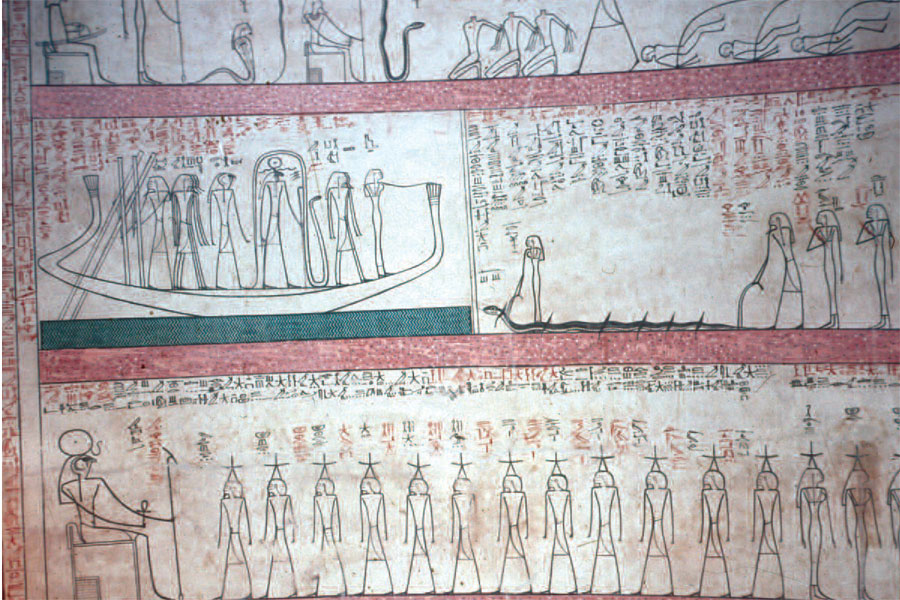
- Premier Eby shows up. He is a surprise visitor to the conference. This tall man with a long stride is clearly passionate about solving B.C.’s housing crisis. He’s only in his fourth day as premier, but he fires off such a rousing speech that he gets a standing ovation! Hopefully, he will do some good.
- Dr. Naheed Dosani steps up. Early in his medical career, he discovered that homeless people die alone and in misery. He became a palliative care doctor dedicated to helping this vulnerable segment of society transition with dignity from life to death. He speaks of developing “grief circles” to help the living honour the dead. He echoes what Larid is hitting upon, saying that any success he has is rooted in the community he has been able to build. He’s not happy that we’ve “criminalized poverty.”
- Robert D. Bullard takes centre stage. He acknowledges the climate crisis in America and then blames white people for weaponizing it so they can destroy black people. What?
- Ivan Coyote is another keynote. This trans person is from the Yukon and has had a hard life. Ivan tells heartbreaking stories and moves many to tears. The big idea of Coyote’s speeches is obvious: Accept trans people for who they are, whatever that might be.
- This conference felt more like a human rights rally accented with a first nations worship service. However, the point of this emphasis was clear to me. Marginalized people have the most difficulty getting adequate housing, and our sector must ensure that doesn’t happen.
For me, the most potent part of the conference was its conclusion. First Nation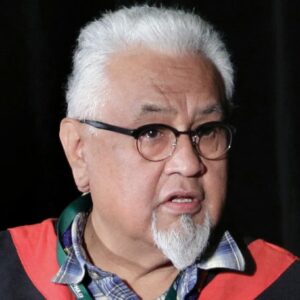 Elder Shane Point is the most gentle, grandfatherly warm-spirited person I’ve experienced in a long time. He is unhurried as he takes the stage. He looks out at us and smiles broadly. He laughs; it’s a burst of joy mixed with admiration. He thanks us for the work we do. He pauses, penetrating the crowd with loving eyes, and says as a doting father would say to his son or daughter.
Elder Shane Point is the most gentle, grandfatherly warm-spirited person I’ve experienced in a long time. He is unhurried as he takes the stage. He looks out at us and smiles broadly. He laughs; it’s a burst of joy mixed with admiration. He thanks us for the work we do. He pauses, penetrating the crowd with loving eyes, and says as a doting father would say to his son or daughter.
“I’m proud of you; I’m proud of you. I’m happy for you. I will miss you.”
Then he has us stand and hold hands. Fifteen hundred of us linked together in a common cause. I feel the energy of hope that comes from physical touch. He says he will pray to the Infinite creator and his long-past ancestors, asking them to provide us with safe passage home. He then sings his prayer of conclusion. His is a seasoned voice of wisdom and hope singing an ancient song of gratitude and blessing. The work we do isn’t easy, but somehow, in that moment, surrounded by love and ancient wisdom, it just got a little bit easier.
